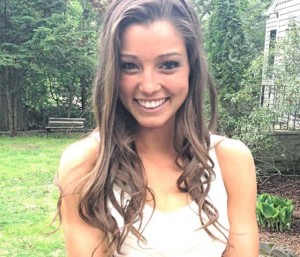 As I read the outpouring of love and support on Facebook from my former students who knew Madison Holleran, I just kept thinking “She could have easily been one of my students.” Her tragic suicide shocked Bergen County, NJ last week with a wave of overwhelming grief.
As I read the outpouring of love and support on Facebook from my former students who knew Madison Holleran, I just kept thinking “She could have easily been one of my students.” Her tragic suicide shocked Bergen County, NJ last week with a wave of overwhelming grief.
I forced myself to detach myself from seeing Madison in the likeness of my former students. I wanted to search for the hidden lessons amongst the grief of those struggling to understand her choice to take her own life. What light could be gleaned from Madison’s that would cause us to think and act differently?
I’ve listened to people speak around the real issue: The fear and shame that is still associated with mental illness. I was saddened to read a recent blog post about Madison where a mother was interviewed about her own child’s mental health struggles. She didn’t want to reveal her identity because of the social stigma I speak of.
I am not a mental health professional, but as a student of social and organizational psychology I would like to comment on the some the unspoken and insidious societal conditions that contribute to the reality of a social stigma around mental health care. These conditions are not to blame for Madison’s death, they just may cause us to think about some things in a new way.
The Hard Facts
According to the center of disease control suicide is the THIRD leading cause of death for young people between the ages of 10 and 24. How willing are we to LOOK at how our BEHAVIORS and SYSTEMS contribute to the stigma being perpetuated? Here are just two things I see so far. There is no happy way to color this, so I’m going right to the core of it.
CONDITION 1: PARENT or BRAGGART?
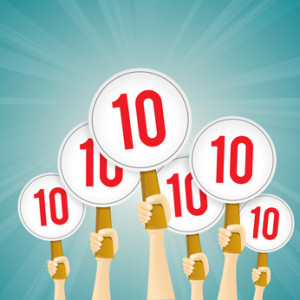 Parents, please listen to the content of your conversations. Do you create the space for someone to share about their child who may be going through a rough time, or are you constantly bragging about your child’s achievements to keep up with the neighbors? I am not saying not to share your child’s accomplishments. What I am saying is this: create BALANCE. You are not perfect and your child isn’t either. Conversations on the soccer field and at Starbucks that are dominated by an underlying competitive edge create conditions that are unsafe for people to share their truths. What if their child isn’t the captain of the football team or didn’t just get a full ride to Boston College?
Parents, please listen to the content of your conversations. Do you create the space for someone to share about their child who may be going through a rough time, or are you constantly bragging about your child’s achievements to keep up with the neighbors? I am not saying not to share your child’s accomplishments. What I am saying is this: create BALANCE. You are not perfect and your child isn’t either. Conversations on the soccer field and at Starbucks that are dominated by an underlying competitive edge create conditions that are unsafe for people to share their truths. What if their child isn’t the captain of the football team or didn’t just get a full ride to Boston College?
Be real. Your kid goes through stuff. They win some AND they lose some. Be vulnerable. It’s not about you. Adolescence is a turbulent time. Create safe spaces for others to share their realities. No parent should ever feel ashamed to discuss their child’s mental health challenges with a friend. NEXT STEPS: pass these lessons of compassion and empathetic listening to your children.
CONDITION 2: OUR CONTENT HEAVY EDUCATION SYSTEM
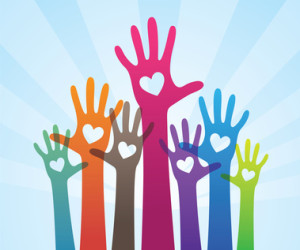 By teaching more math than emotional awareness and more history than conflict resolution we continue to send the message to young people: YOU ARE A MACHINE. We still have an education system that is so heavily INFORMATION based and not DEVELOPMENTALLY based. Are math and history important? YES. Equally important is personhood, self-awareness, and the deep understanding that depression, anxiety, and other forms of mental health issues are prevalent and are nothing to be ashamed of. If we teach personhood IN THE CLASSROOM from day one as much as we teach common core curriculum the world might look quite different. We can teach this in a variety of ways through character, leadership, and service-based learning. NEXT STEPS: Develop the “uncommon core” curriculum that treats students like people instead of testing machines. (By the way — I’m up for this –anyone?)
By teaching more math than emotional awareness and more history than conflict resolution we continue to send the message to young people: YOU ARE A MACHINE. We still have an education system that is so heavily INFORMATION based and not DEVELOPMENTALLY based. Are math and history important? YES. Equally important is personhood, self-awareness, and the deep understanding that depression, anxiety, and other forms of mental health issues are prevalent and are nothing to be ashamed of. If we teach personhood IN THE CLASSROOM from day one as much as we teach common core curriculum the world might look quite different. We can teach this in a variety of ways through character, leadership, and service-based learning. NEXT STEPS: Develop the “uncommon core” curriculum that treats students like people instead of testing machines. (By the way — I’m up for this –anyone?)
There are many more important points to make, but I want to turn it on the positive to end this article. These are two good ones to start thinking about and will give way to other important points.
Condolences & Making a Difference
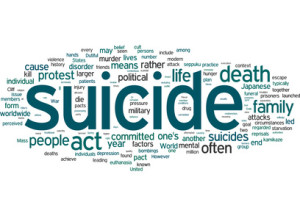 As a message to Madison’s family and friends, Get Smart sends it utmost sympathy, love and support. Our messages of motivation and positivity are never a substitute for mental health care, but we seek to support young people in the journey of understanding and accepting their perfectly imperfect selves. Since many of the Get Smart Junior Advisory Council is made up of “jersey girls” from Madison’s surrounding area, they can all relate and feel the sadness that her family and friend’s must feel.
As a message to Madison’s family and friends, Get Smart sends it utmost sympathy, love and support. Our messages of motivation and positivity are never a substitute for mental health care, but we seek to support young people in the journey of understanding and accepting their perfectly imperfect selves. Since many of the Get Smart Junior Advisory Council is made up of “jersey girls” from Madison’s surrounding area, they can all relate and feel the sadness that her family and friend’s must feel.
Heather Ford, a friend of Madison is sponsoring a personal fundraising effort by dedicating her run in the New York half marathon this March to Madison. She has raised over $25,000 for the American Foundation for Suicide Prevention in just over a week. We applaud Heather for being a TRUE Get Smart Gal : an authentic compassionate leader who is making a difference. To donate to Heather’s run please click here.
To receive weekly motivational and insightful emails from Get Smart please join our mailing list here!
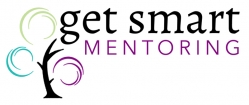







Leave A Comment